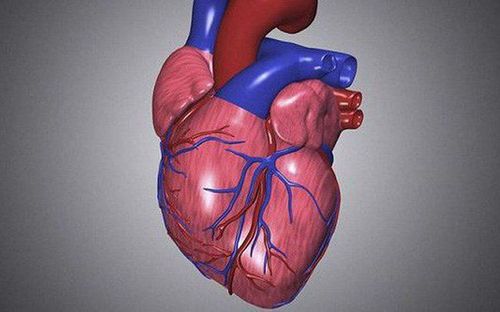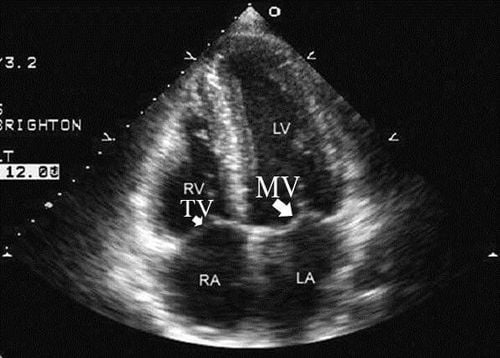This is an automatically translated article.
The article was professionally consulted by Specialist Doctor II Ho Viet Le Diem - General Internal Medicine - Department of Examination & Internal Medicine - Vinmec Central Park International General Hospital.Family history of coronary artery disease is an important part of taking the medical history during the general physical examination, especially in middle-aged or pre-existing patients. This should be noted to actively visit even when the patient has absolutely no symptoms. Only when doing so, will the general health examination bring the highest meaning.
1. What is the family history of coronary artery disease?
Medical history is the information surrounding the patient's reason for visiting as well as medically related information about the patient himself, his family members, people living nearby and environment. This is an important stage in the medical examination and treatment process at a hospital or any other medical facility.In some cases, information about personal and family history is closely related, which is suggestive of rapid diagnosis in complex and critical situations.
For family history of coronary heart disease, this is an important genetic risk factor for the patient's own disease. This means that the risk of these subjects is many times higher than that of their peers but without a family history of coronary heart disease. On the other hand, this is also the basis for accurate diagnosis and providing appropriate care for each patient, especially those who have a history or high risk of the disease. Therefore, the doctor needs to take the initial time to take a thorough history. With the exception of emergency situations, this is never a waste but also an opportunity to put the patient at ease and build confidence in the physician's abilities.
In it, the doctor will focus on the classic signs of cardiovascular disease such as chest pain or other symptoms. At this point, the patient will be asked to describe the pain with characteristics of location, direction, onset, or other accompanying signs such as nausea, vomiting, shortness of breath, dizziness, fainting , tachycardia, irregular heartbeat...
Besides, the doctor also needs to ask about the patient's general health and lifestyle, such as previous heart tests, cholesterol level, blood pressure, exercise habits, smoking or drug use, stress levels and other areas of life.
Finally, a detailed medical history of family members should also be taken. The doctor will carefully note in the records when the patient has one or more blood relatives who have had or had early coronary artery disease and the events occur to guide the diagnosis and subsequent prevention.
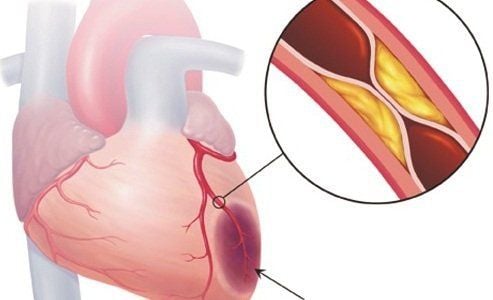
Tiền sử gia đình mắc bệnh mạch vành có nguy cơ di truyền bệnh tật
2. What is the significance of routine examination for patients with a history of coronary artery disease?
People with a personal history of cardiovascular disease or at risk of acquiring it can visit health care facilities at different stages of the disease. Specifically, when the disease is completely asymptomatic until the disease has obvious symptoms but the patient himself has not recognized it. Therefore, at the general health check-up location, the doctor needs to make an accurate assessment to ensure that the patient receives the necessary attention, care and treatment.In which, the first approach is to take the clinical history, focusing on the heart disease history of the patient himself and his family, which is essential. In particular, a family history of coronary heart disease is a very important risk factor, especially when it occurs in close relatives.
Only when this is done in detail and clarity, the doctor can guide the next steps, including clinical examination, ordering appropriate tests and treatment. In case the patient has a family history of coronary heart disease, due to the genetic risk of the disease, the doctor must also advise on screening other family members, proactively preventing heart events. Unfortunate circuitry may occur.

Khám định kỳ nếu tiền sử gia đình mắc bệnh mạch vành giúp tầm soát cho các thành viên khác trong gia đình
3. What to do for routine check-ups if there is a family history of coronary artery disease?
When going to a regular health check-up, different from those with no family history, those with a family history of coronary heart disease, in addition to the basic information or examination, the doctor will pay more attention. on cardiovascular markers in the patient's personal medical history and at the present time.Accordingly, things to do during routine examination if family history of coronary heart disease is presented as follows:
Collection of administrative information
Full name, age, gender Occupation – Economic condition Educational status Marital status Current address Cardiovascular status
Current signs and symptoms experienced by patient and detailed description, such as angina , palpitations or signs of anxiety high blood pressure Information about medications, allergies, lifestyle and habits like smoking, alcohol Personal history
Previous medical history: Myocardial infarction , atrial fibrillation , peripheral vascular disease , increased blood pressure blood pressure, hyperlipidemia, rheumatism and other medical conditions that are associated with heart disease such as hyperthyroidism, diabetes mellitus. Surgery or hospital admissions, including obstetrics. Drugs that have been or are being used: Cardiovascular drugs: beta blockers, calcium channel blockers, ACE inhibitors, diuretics, statins, antiplatelets, anticoagulants, nitrates... Contraceptives - increase the risk of disease blood clots Over-the-counter drugs such as NSAIDS or aspirin Herbal
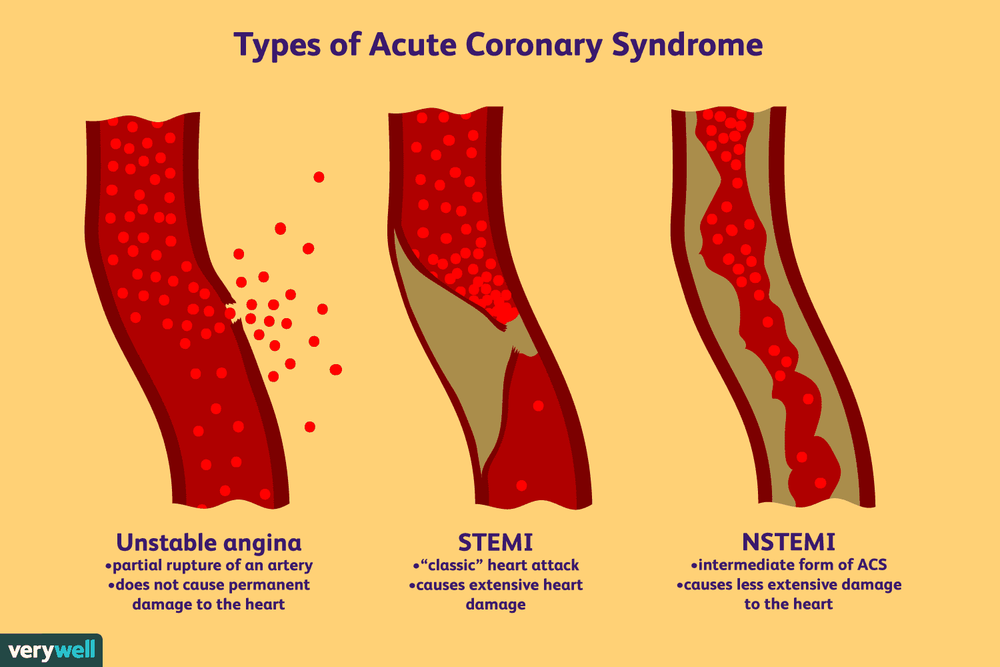
Bệnh nhân có tiền sử nhồi máu cơ tim cũng cần được bác sĩ chú ý khi khám lâm sàng
Relatives had cardiovascular disease at a young age: myocardial infarction, hypertension, stroke, thromboembolism Have a relative early death: determine age and cause of death Have any deaths unexplained death in a young relative, suspected hereditary heart disease such as long QT syndrome, cardiomyopathy Cardiovascular function exam
Measurement of vital signs such as blood pressure, heart rate, weight and height to calculate body mass index Look for signs of shortness of breath, chest shape, neck veins in posture, signs of collateral circulation Feel the pulse in extremities, signs of swelling, palpation in the heart, find foci Abnormal beats Listen to the heart assess the heart rate and characteristics and look for pathological murmurs Perform dynamic tests to assess postural murmurs Order laboratory tests
Blood tests - check levels lipids in the blood. If located at high levels, this will be a factor in atherosclerosis, causing heart attacks and strokes. Electrocardiogram (ECG) - this is a non-invasive and painless medical test that detects structural abnormalities and heart rhythm by measuring the electrical activity produced by the heart when it contracts. Chest X-ray – Using radioactive energy, describes and evaluates the structure and shape of the heart, the great circulation, and the lungs and pleura. Echocardiography – With ultrasound waves, the shape and function of the heart is shown, helping doctors find abnormalities at the earliest, even when there are no symptoms.
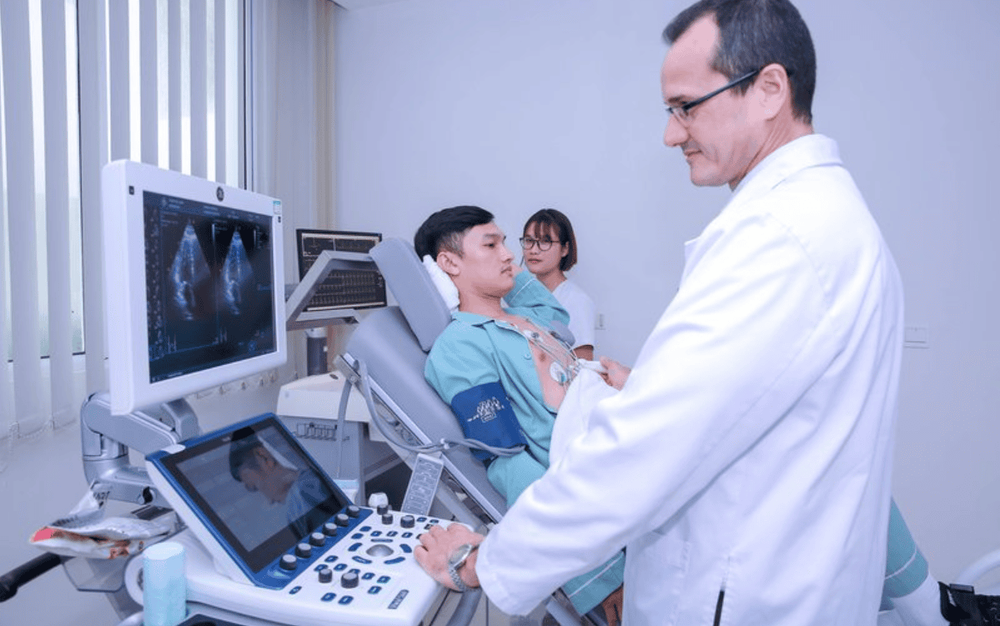
Siêu âm tim được chỉ định xét nghiệm cận lâm sàng
All the data collected after this process will help the doctor make a diagnosis, treatment and long-term follow-up.
4. Periodic examination if family history of coronary artery disease at Vinmec
As the material life and level of knowledge are constantly improving, regular health check-ups are essential for everyone to have the opportunity to live longer and live healthier.Indeed, by taking the initiative to go for a general health check-up even before there are any abnormal signs, through visiting, examining and performing screening tests, doctors can help Identify early warning signs. Especially given a personal history of cardiovascular disease or a family history of coronary heart disease, when detected in its early stages, treatment can be more effective, more successful, and proactive in preventing complications. events for the patient.
Vinmec International General Hospital deploys the Coronary Examination Package, which is applied to patients with a history of hypertension, diabetes and dyslipidemia. In addition, people who smoke a lot and who are obese should also use this package to detect early risk of coronary heart disease, if any.
In this package of coronary examination, the patient will be examined by a specialist in Cardiology and do detailed quantitative tests, thereby making conclusions about the patient's condition to get the earliest treatment plan. . In addition, the package also includes echocardiography and other general ultrasound services.
Note that when going to the coronary examination, the patient must not eat breakfast to get the most accurate diagnosis.
Doctor Ho Viet Le Diem has more than 10 years working in the Department of Resuscitation - Cardiac Surgery at Cho Ruong Hospital with the position of cardiologist and Open Heart Resuscitation. And has more than 03 years as a General Internal Medicine doctor at Family Medical Practice in Ho Chi Minh City. Currently, Dr. Diem is working at the Internal Medicine Department - Vinmec Central Park International General Hospital.
Please dial HOTLINE for more information or register for an appointment HERE. Download MyVinmec app to make appointments faster and to manage your bookings easily.






